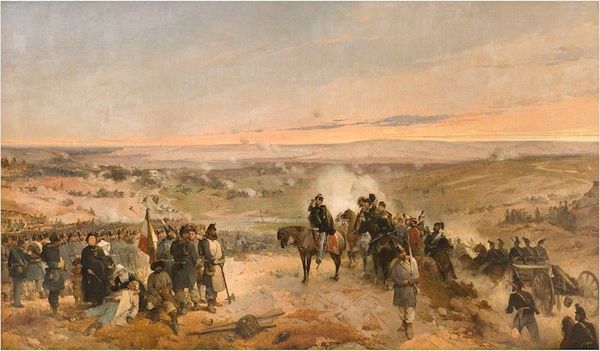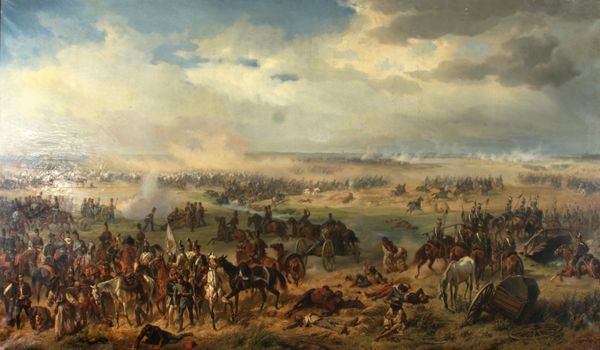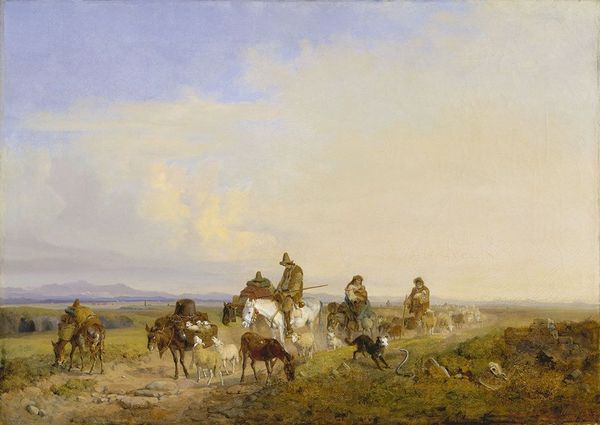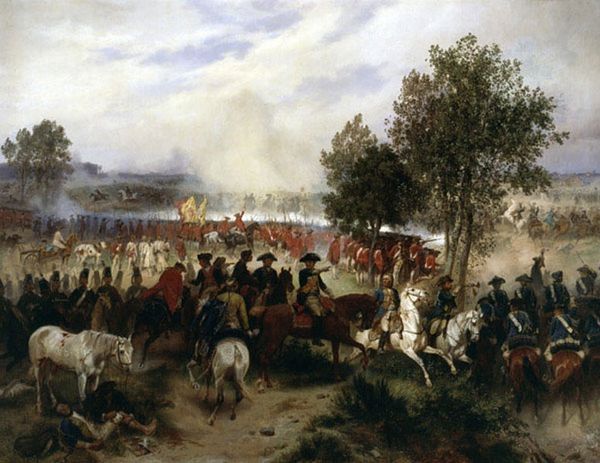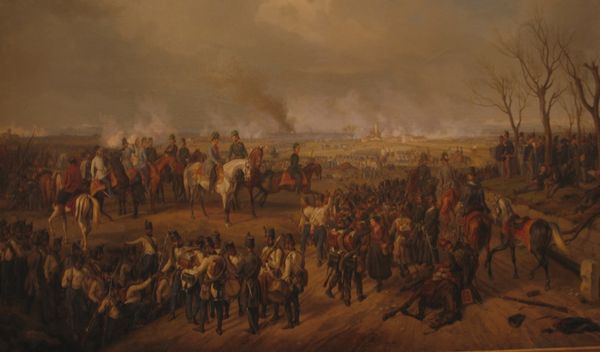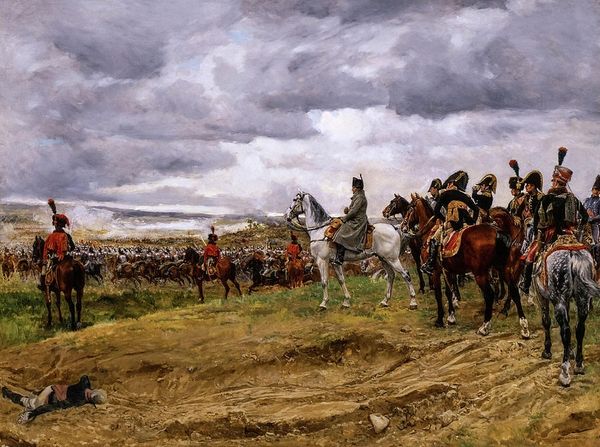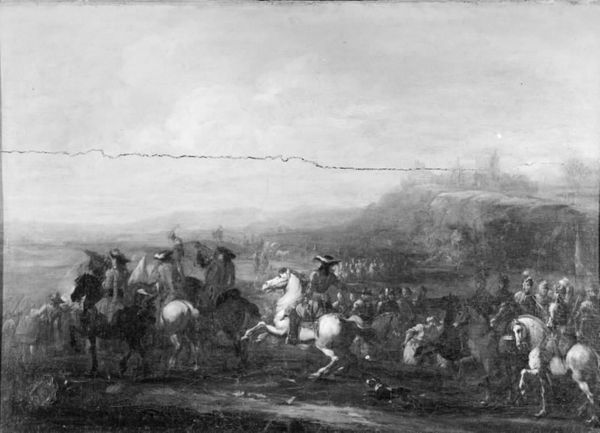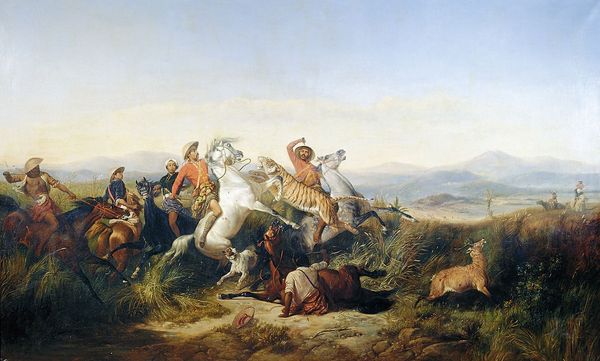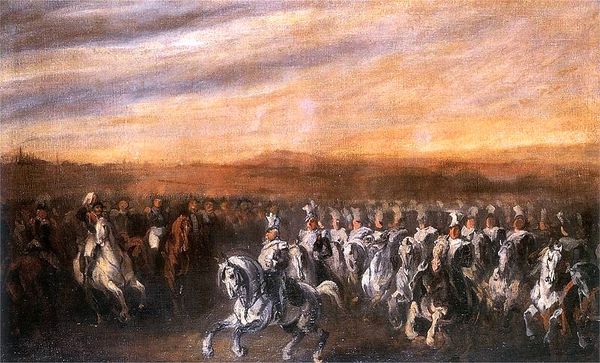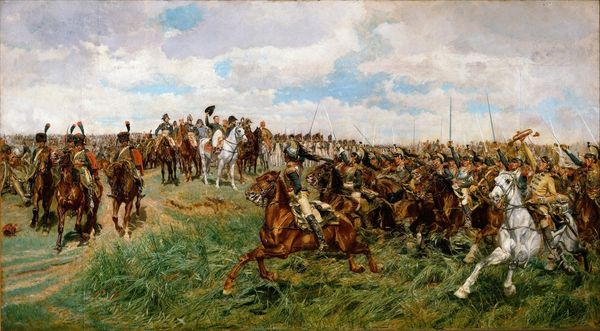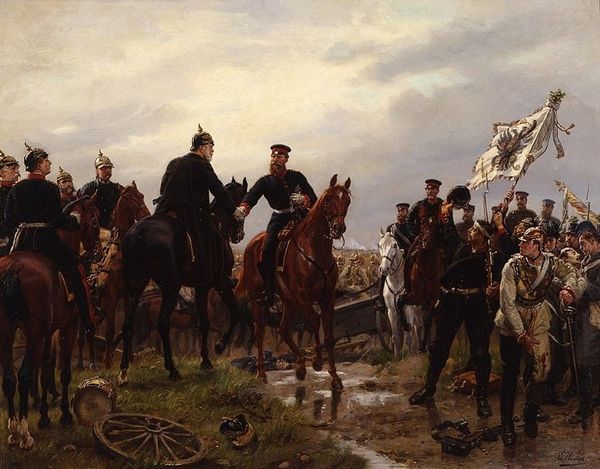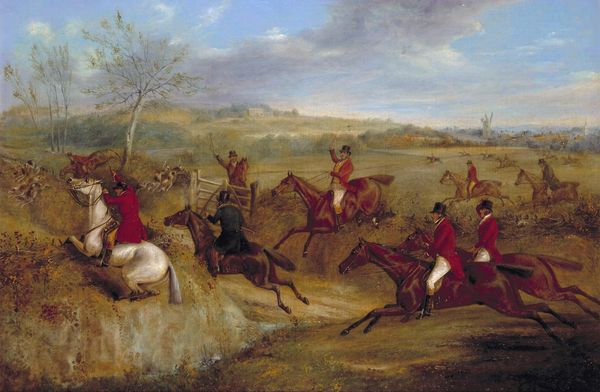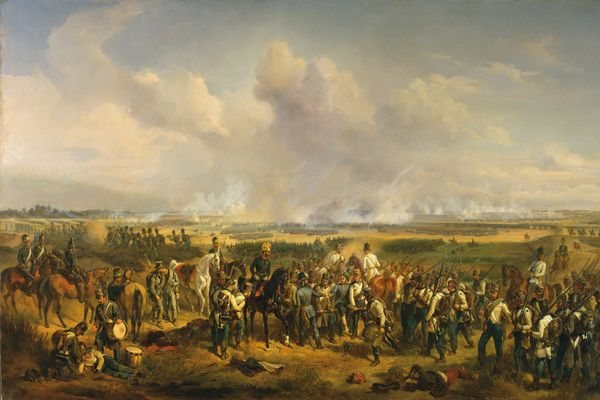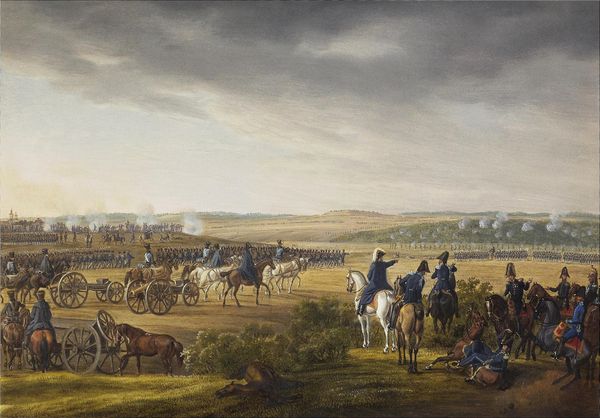
Copyright: Public domain
Ernest Meissonier captured this scene of "Napoléon III at the Battle of Solferino" with oil on canvas. At the fore, we see the Emperor and his entourage, figures of authority surveying the battle scene that unfolds before them. Note the motif of the horse and rider, a powerful symbol of command found in classical equestrian statues, echoing back to antiquity. Think of Marcus Aurelius on horseback, a figure of Roman imperial power. The iconography of the leader on horseback transcends cultures, appearing again and again to represent the control and authority of a ruler during warfare. Yet, here, amidst the smoke and chaos, the image carries a sense of detachment. Napoleon's composed posture contrasts starkly with the brutal reality of war. It's a potent reminder of how symbols of power can be both timeless and tragically divorced from the human experience. The scene is a poignant reflection on the cyclical nature of power, conflict, and the enduring human cost of war.
Comments
No comments
Be the first to comment and join the conversation on the ultimate creative platform.
